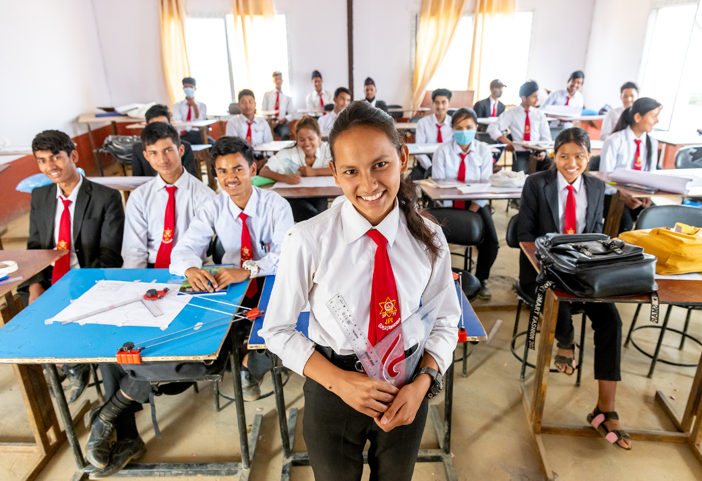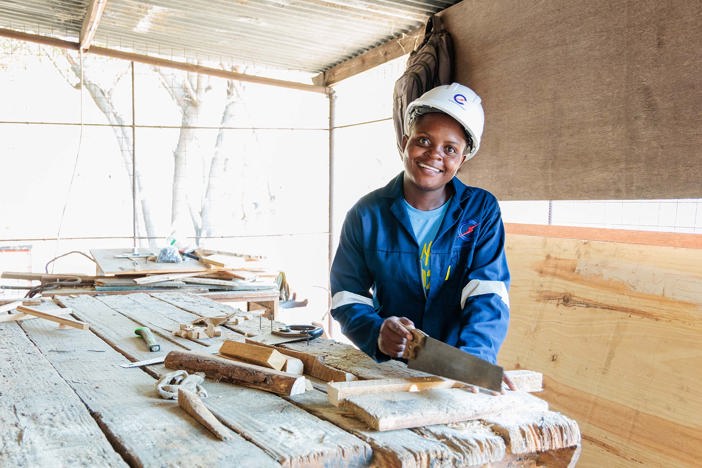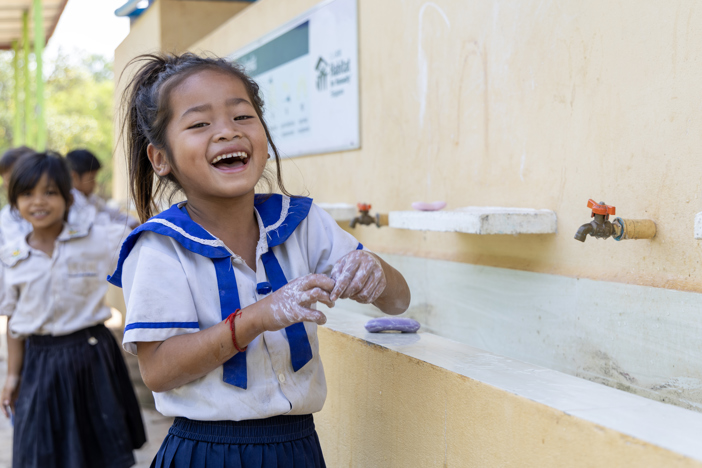On January 24, we celebrate International Day of Education, an opportunity to reflect on the transformative power of education in shaping lives and communities. This year’s theme, ‘AI and Education: Human Agency in an Automated World,’ invites us to explore how education equips people to navigate and influence the ever-evolving technological landscape.
Education: A Fundamental Right
Education is fundamental to breaking the cycle of poverty, achieving peace and development. Enshrined in the Universal Declaration of Human Rights, education is not just a privilege but a right. Yet, despite significant progress in recent years, millions of children and adults are still being left behind. According to the United Nations, an estimated 200 million children will still be out of school by 2030, and 617 million children worldwide lack basic literacy and mathematics skills. These statistics underscore the urgent need for action.
Breaking the Cycle of Poverty
At Caritas Australia, we understand that education is a powerful tool in helping vulnerable people across the world break the cycle of poverty. Education and training empower people with the knowledge and skills to improve their livelihoods and lift entire communities out of poverty. However, barriers such as poverty, gender inequality, and conflict continue to deny many children access to quality education.
Women and girls, in particular, face significant challenges and barriers when it comes to education. With your generosity and with the support of our partners, we work tirelessly to tackle the barriers of gender inequality, cultural norms, and child marriage that often rob them of their right to learn. Many girls and young women must walk long distances to school, risking their lives and wellbeing, while others lack access to adequate sanitation facilities, leading to high dropout rates. By improving health and sanitation in schools, and addressing societal norms, we can ensure that more girls stay in the classroom and thrive.

Laxmi at her school in Nepal with her classmates. Photo: Caritas Australia.
Memory's story
Memory, 27, grew up in the Mwanza district of southern Malawi, where poverty and household responsibilities often made education seem out of reach. As the eldest of five, she balanced farming, fetching water, and caring for siblings while attending school. Despite these challenges, she remained determined: “When I was in primary school, I went to school barefooted because my parents didn’t have money to buy shoes for me. But I told myself I can’t stop going to school because this is the only way I can get a better life.”
In Malawi, only three out of 100 girls complete their education, with many leaving due to financial constraints, early pregnancies, or child marriage. Memory feared this cycle of poverty but was given hope through Caritas Australia’s A+ Program*, delivered with the Catholic Development Commission in Malawi (CADECOM). The program supported her vocational carpentry training by covering tuition and boarding fees.
Now, with an Advanced Certificate in Carpentry and Joinery, Memory is employed by a major hydroelectric company and is the first female carpenter in her village. Her success proves the transformative power of education, inspiring other girls to pursue their dreams.

Memory sawing a piece of timber in a workshop. Photo: Caritas Australia
Building a Brighter Future
On this International Day of Education, let us reaffirm our commitment to ensuring inclusive, equitable, and quality education for all. Together, we can empower communities, reduce poverty, and create a brighter future for generations to come.

Students washing their hands at school in Cambodia. Photo: Caritas Australia.
Along with your generous support, this program is supported by the Australian government through the Australian NGO Cooperation Program (ANCP).


















